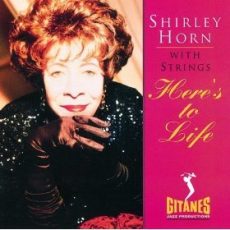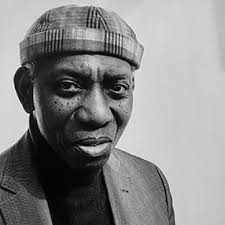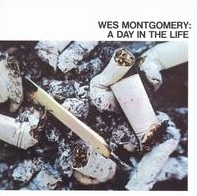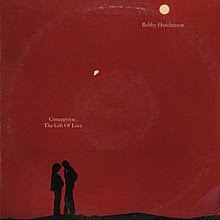
Requisites
The very first time I heard Shirley Horn sings and play piano was in the 1970s at the Bohemian Caverns in Washington, D.C. and I fell in love with her voice and style. By then she had recorded five albums and when I was on the radio she became a part of my regular playlist. Here’s To Life is a studio album recorded in September 1991 by the vocalist, and released in 1992. The album was arranged by Johnny Mandel who composed three of the songs on the album. He also received a Grammy Award for Best Instrumental Arrangement Accompanying Vocals on this album. It’s a quiet album of ballads that once again showcases Shirley’s talent. Johnny Mandel arranged and conducted the recording session for the Verve label.
The album opens with the title track with Here’s To Life which became her signature song. The music was written by Artie Butler and the poignant lyrics were written by Phyllis Molinary. The lyric, known world-wide as one of her finest works and the song is considered a modern day jazz standard. She followed with a medley of Come A Little Closer/Wild Is the Wind. The former song is about New Yorkers, the city and the cell phone that disputes a couple’s marriage. The song is paired with Wild Is The Wind which was written as the theme song for the 1959 film of the same name and recorded by Johnny Mathis. It was nominated for an Oscar for Best Song.
How Am I to Know? by Jack King and Dorothy Parker takes the third slot on the album. A Time for Love was written for the 1966 film An American Dream. The Begman/ Mandel tune, Where Do You Start tells the story of a couple breaking up and undecided about what belongs to whom. The next song You’re Nearer is a Lorenz Hart/Richard Rodgers composition for the Broadway musical Too Many Girls. Our next entry in Return to Paradise was written for the 1953 film of the same name by Dimitri Tiomkin and Ned Washington. Isn’t It A Pity was composed by the Gershwins for the unsuccessful 1933 musical Pardon My English, however, the song became a part of the Great American Songbook.
Quietly There is taken from the noir film Harper that starred Paul Newman as a detective. If You Love Me is an English adaptation of the popular French song “Hymne à l’amour of Hymn To Love. The album closes with Summer is the first English version of the Italian standard Estate. She ordered English lyrics after hearing Joao Gilberto’s version, which spread the song to worldwide fame.
Shirley Horn sings and plays piano and is joined by bassist Charles Ables and dummer Steve Williams as her core trio. She invited trumpeter Wynton Marsalis – to play on A Time For Love and Quietly There. Richard Todd plays the French horn on the title track. Reminding me of how precious life is and how much we should live and love, this has become my favorite album by this vocalist. I hope you enjoy it just as much as I.
More Posts: choice,classic,collectible,collector,history,instrumental,jazz,music,vocal

Jazz Poems
ELEGY FOR THELONIOUSDamn the snow
Its senseless beauty pours a hard light through the hemlock. Thelonious is dead. Winter drifts in the hourglass; notes pour from the brain cup. Damn the alley cat wailing a muted dirge off Lenox Ave. Thelonious is dead. Tonight’s a lazy rhapsody of shadows swaying to blue vertigo & metaphysical funk. Black trees in the wind. Crepuscule with Nelly Plays inside the bowed head. “Dig the Man Ray of piano!” O Satisfaction, hot fingers blur on thosewhite rib keys. Comingon the Hudson. Monk’s Dream. The ghost of bebop from 52nd Street, footprints in the snow. Damn February. Let’s go to Minton’s & play “modern malice” till daybreak. Lord, there’s Theloniou wearing that old funky hat pulled down over his eyes.Yusef Komunyakaa | 1947
from Jazz Poems ~ Selected and Edited by Kevin Young
More Posts: book,classic,collectible,history,jazz,library,poet

Requisites
A DAY IN THE LIFE | WES MONTGOMERY
One of my favorite jazz albums that I first heard during my freshman year in college was the 1967 album A Day In The Life by Wes Montgomery. It was recorded on June 6 & 26, 1967 at the Van Gelder Studio in Englewood Cliffs, New Jersey and released on the A&M/CTI label later that year in September.
The 34:21 minute album is filled with covers of rock and pop songs selected by the guitarist who opens Side One with the title track, A Day In The Life by John Lennon and Paul McCartney, originally released on their Sgt. Pepper’s Lonely Hearts Club Band. It’s a great opener that builds from a quiet start into a cavalcade of strings by its end. Watch What Happens is from the 1964 musical romantic drama film The Umbrellas of Cherbourg written and directed by Jacques Demy, with music by Michel Legrand.
The Calvin Lewis and Andrew Wright #1 tune When a Man Loves a Woman is the third addition to the side and first recorded by Percy Sledge in 1966. California Nights is a song written by Marvin Hamlisch and Howard Liebling and recorded by Lesley Gore in 1967. The final song is Angel and is the only composition contributed by Montgomery.
Side Two is opened by another Lennon/McCartney song, Eleanor Rigby. One premise is that the inspiration for the title is the actress Eleanor Bron who starred in the Beatles movie Help!. Rigby came from the name of a store in Bristol, Rigby & Evens Ltd. Next up is Willow Weep For Me, that once again accounts the inspiration for the song is that Ann Ronnell, while at Radcliffe College, had been struck by the loveliness of the willow trees on campus, and this observation became the subject of an intricate song.
Windy, another No. 1 tune recorded by The Association, and was composed by Ruthann Friedman. Trust In Me was composed by Milton Ager, Jean Shwartz and Ned Wever and was made popular in 1937 by Mildred Bailey. Closing out the session is The Joker, a song by Leslie Bricusse and Anthony Newley, and is taken from the 1964 musical The Roar of the Greasepaint – The Smell of the Crowd. It’s a lament of a person, seen by the outside world as a jester and a comedian especially when they fail.
The recording session was produced by Creed Taylor, was arranged and conducted by Don Sebesky, the engineer was Rudy Van Gelder and the principal photography was performed by Pete Turner.
The guitarist did little more than play the melody using his distinctive octaves. A Day in the Life is a collaboration of guitar and strings. For these ears it was a pleasurable listening experience.
More Posts: choice,classic,collectible,collector,guitar,history,instrumental,jazz,music

Jazz Poems
SHAKING HANDS WITH MONGO
for Mongo SantamariaMongo’s open hands
huge soft palms
that drop the hard seeds
of conga with a thump,
shaken by the god of hurricanes,
raining mambo coconuts
that do not split
even when they hit the sidewalk,
rumbling incantation
in the astonished dancehall
of a city in winter,
sweating in a rush of A-train night,
so that Chano Pozo,
maestro of the drumming Yoruba heart,
howling Manteca in a distant coro,
hears Mongo and yes,
begins to bop
a slow knocking bolero of forgiveness
to the nameless man
who shot his life away
for a bag of tecata
in a Harlem bar
forty years ago
Martín Espada | 1957
from Jazz Poems ~ Selected and Edited by Kevin YoungMore Posts: book,classic,collectible,history,jazz,library,poet

Requisites
CONCEPTION: THE GIFT OF LOVE | BOBBY HUTCHERSON
Conception: The Gift of Love is a post bop album by vibraphonist Bobby Hutcherson. The album was recorded over a two day period on March 15 & 16, 1979 at A&R Recording Studios in New York City and at the Van Gelder Studio in Englewood Cliffs, New Jersey. The 37 minute, 52 second album was produced and arranged by Cedar Walton and released on the Columbia Records label.
Vibraphonist Bobby Hutcherson’s quintet includes pianist George Cables, bassist James Leary, drummer Eddie Marshall and percussionists Bill Summers and Kenneth Nash. He brings a stellar horn section to the session with flutist Hubert Laws, trumpeters Jon Faddis, Danny Moore, Anthony Tooley, Joseph B. Wilder, tenor trombonists Robert Alexander, John Gale, Urbie Green, bassoon and bass clarinetist Romeo Pinque, alto saxophone Lenny Hambro, and tenor saxophonists Daniel Trimboli and Frank Wess.
The seven originals were composed by the band members. Side One opens with the leader’s composition No Siree Bob (7:00), followed by Clockwise by Cedar Walton (6:39), and closes with James Leary’s Remember to Smile (5:38). Side Two commences with Dark Side, Light Side by George Cables (4:06), then another Leary composition Hold My Hand (3:58), Eddie Marshall’s Dreamin’ (6:07) and closes with a second Cable composition titled Quiet Fire (4:24).
Though some critics have claimed this album to be one of his lesser releases with nothing memorable occuring, there are some who state it is a masterpiece of lyrical, straight ahead jazz that is melodically beautiful. I found it to be an enjoyable escape and leave it to you to discover for yourself.
More Posts: choice,classic,collectible,collector,history,instrumental,jazz,music,vibraphone



